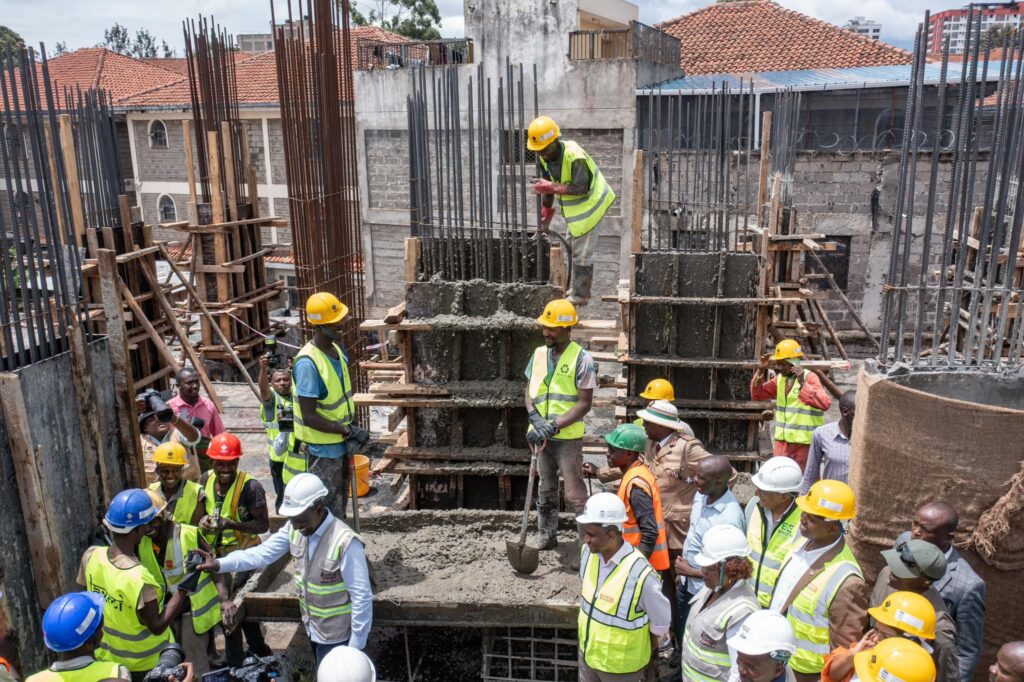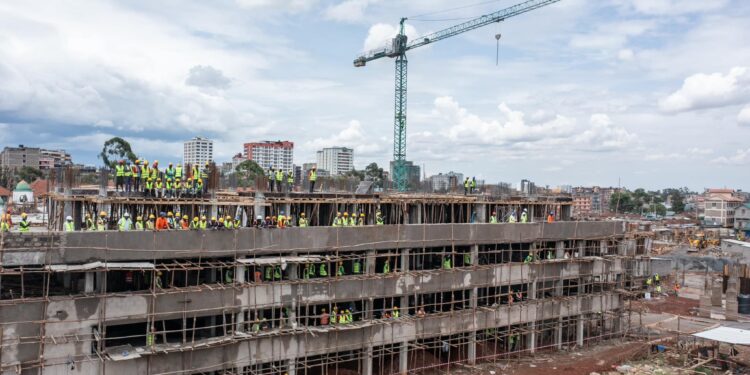President William Ruto’s administration has placed Affordable Housing at the heart of its Bottom-Up Economic Transformation Agenda (BETA), aiming to create jobs while ensuring Kenyans have access to decent housing. With rapid urbanization and a growing population, informal settlements have expanded, trapping millions in poverty and poor living conditions. The government has now embarked on a nationwide slum eradication program through the Affordable Housing Programme (AHP), targeting major cities like Nairobi.
The President has reiterated his commitment to ending the indignity of slum life by transforming informal settlements into modern, well-planned housing developments. During his recent working tour of Nairobi, he emphasized that the initiative would continue despite political opposition. He noted that beyond housing, the program is also a massive job creation initiative, employing thousands of youths in construction and related industries.
Speaking in Mathare Constituency, one of Nairobi’s largest informal settlements, President Ruto assured residents that slums in the area would soon be replaced with decent, affordable homes. The government has already started various housing projects in Nairobi, including in Kibera, Mukuru, and Mathare, where old slums are making way for modern housing units equipped with essential amenities.
The Affordable Housing Programme is structured to benefit low- and middle-income earners, allowing them to own homes through structured payment plans. Under the plan, potential homeowners pay affordable monthly contributions rather than lump sum amounts, making homeownership accessible to thousands who would otherwise remain in rental slums. The government has also introduced housing cooperatives to help Kenyans collectively invest in homeownership.

The slum redevelopment efforts involve partnerships with both local and international investors to fund and implement housing projects. The program aligns with Vision 2030 and the government’s urban renewal agenda, ensuring cities grow sustainably while offering residents quality housing and basic infrastructure such as roads, water, electricity, and sewer systems.
To support this ambitious housing initiative, President Ruto has also focused on expanding technical and vocational education to equip young people with the necessary skills for the construction sector. While launching the Mathare Vocational Training College, he underscored the importance of vocational training in addressing youth unemployment. He also inspected the progress of classroom construction at Mathare Mixed Secondary School and pledged to build 10 additional classrooms at St. Teresa’s Girls Secondary School, boosting Nairobi’s education sector.
Another critical element of the housing plan is the expansion of government administrative units to ensure efficient service delivery. While commissioning a new Deputy County Commissioner’s Office in Ruaraka, the President emphasized the role of national administrators in coordinating infrastructure projects and maintaining order in growing urban areas.
Despite political resistance, President Ruto has vowed to push forward with his agenda, stating that no region, community, or religion will be left behind in the development of Kenya. He urged leaders to focus on unity and national prosperity rather than engaging in divisive politics.
With slum redevelopment underway, thousands of housing units are currently under construction in Nairobi, marking a significant step toward achieving affordable housing for all. As more projects are rolled out across the country, the government remains steadfast in its mission to provide decent shelter, create jobs, and uplift millions of Kenyans from poverty.










